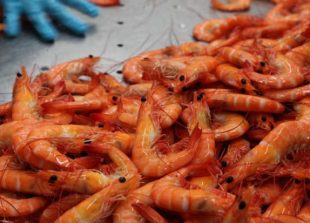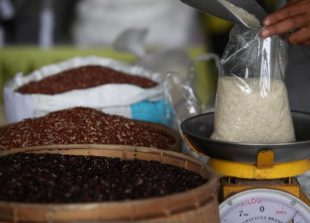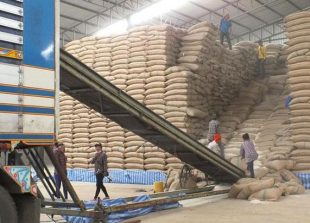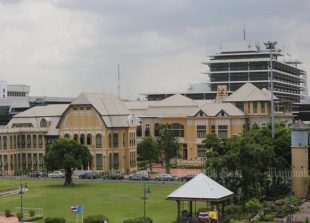Even though challenges from ecommerce to retail businesses are mounting, the Thailandbased retail and trading giant Berli Jucker Plc (BJC) is undeterred, saying it has already adapted to digital disruption. Forming partnerships with ecommerce and online retail businesses such as Lazada or using their own digital platforms are the two options that retail businesses have to address the challenges from ecommerce, say executives of the SET listed conglomerate that owns Big C and Asia Books, as well as brands such as Cellox Purify, Party and Medical Division. “The challenges from online and mobile shopping or ecommerce have been talked about many times and many Thais are currently using this platform to buy products, so the first and the easiest way to adapt to this competition is to form an alliance,” said BJC president and CEO Aswin Techajareonvikul. “The second way is to directly compete with them. Big C Online, Cmart and Asiabooks.com currently exist in the group’s online business. What is important now is that we have to find a new business model in order to find more profits in the ecommerce business.” In the trading business, similar to other businesses, “if you want to look forward, you have to look backward first” in order to find out what has affected business, he said. For the trading business to survive, it will have to engage more closely with customers and continuously adapt to changes in the business environment. Consumer behaviour has changed and the “one to many” model, which involves one place selling everything to everybody, is giving way to “many to many” where customers want to engage with product makers directly. One thing that BJC has learned from this development is that the company and its brands need to mean something to the customers, said Mr Aswin. “In order to mean something to our customers, we have to cover the whole cycle of the demand and supply chains from upstream and intermediate to downstream products,” he said. Upstream refers to raw materials, intermediate or midstream is actual production, and downstream is the retail business. “What we have encountered in the last 20 to 30 years is that the bargaining power of producers is being lessened and it has shifted toward people who can be the closest to their customers, such as online retailers more than traditional retailers.” Mr Aswin said the company’s desire to offer a complete demand and supply chain was the reason why BJC spent US$6.2 billion to acquire the hypermarket operator Big C Supercenter Plc in March this year. Also, to adapt to competition from ecommerce, Big C is digitally connecting the 700plus branches of all store formats in all provinces of Thailand. This will enhance its logistical connectivity and efficiency, aided by software that can help with logistical and risk management. Mr Aswin said BJC was now applying its Thai business and ecommerce models to its expansion within Indochina, notably in Vietnam where it has acquiring various convenience and wholesale store businesses, while also setting up 19 of its own retail stores called MM Mega Market. BJC now owns almost 140 branches of convenience, wholesale and retail stores in Vietnam. The group wants to expand more in the CLMV (China, Laos, Myanmar, Vietnam) markets since it believes retail development will follow the trend seen in Thailand “More and more in Vietnam, customers are looking to buy more conveniently, such as what has happened in Thailand already where smaller stores gaining more growth prospects while big stores with 4,000 to 10,000 square metres are suffering from modernday limitations,” said Mr Aswin. “The trading business is up to the consumers and you have to understand human nature. People with a higher living standard will want to shop more conveniently rather than wasting their time to drive half an hour longer to buy cheaper stuff since they now value their time more than the money they could save.” Customers in Vietnam, Cambodia and Laos are also looking for higherquality products since their incomes are rising. In Vietnam, for example, BJC has been working with the government to strengthen food safety in order to meet higher demand for organic vegetables and fishery products that come from clean manufacturing processes, he added. Source: http://www.bangkokpost.com/business/news/1123329/berli-jucker-adapts-to-digital-disruption
Read More


 Thailand
Thailand









